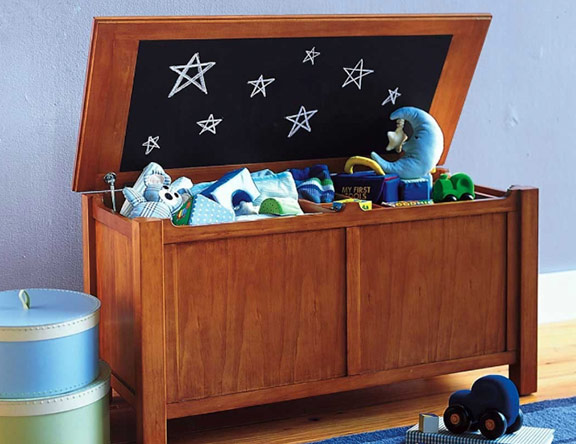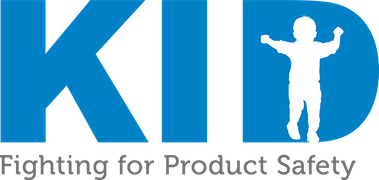Product Hazards – Toy Chests

Death and brain damage have been caused by toy chests and other lids falling on children’s heads or necks. Most of the victims were under 2 years of age, although children as old as 10 have also been injured. In 1996, Twelve million cedar chests by Lane Furniture Company had been recalled. Still, in 2014 a brother and sister were fatally entrapped by the 75-year old chest. According to the CPSC, at least 34 deaths to children under 18 have been reported between 1996 and 2014, all involving toy chests. Since 2005, more than 21,500 toy chests have been recalled due to hazards including strangulation, entrapment, injury, and lead poisoning. As of 2023, United Furniture Industries (UFI) of Tupelo, Miss. is no longer administering the recall and replacement latches and locks are no longer available. KID urges families to remove the latch and drill holes in the back of the chest. Remove chests from homes with children.
A recall or a corrective action had been issued for chests for various reasons including the following:
- When lid is closed, the chest latches automatically
- Lid supports that fail, causing the lid to collapse suddenly on a child’s head, neck, hands, or fingers. It also poses a strangulation hazard
- Chests that lack a lid support device and do not have adequate ventilation
- Lead poisoning hazard
Make sure your toy chest or trunk stays open without having to hold it and doesn’t latch automatically when closed. A better solution is a chest with a lightweight lid that rests on the unit without being attached or an open bin. If your toy chest doesn’t stay open or latches automatically, stop using it and report it to CPSC. It is now mandatory under the Consumer Product Safety Improvement Act of 2008 that toy chests meet these standards.
More Information on Toy Chests
Report an Injury or Incident to SaferProducts.gov
Do you have a product injury or incident to report? Use the button below to contact
SaferProducts.gov and help other people avoid similar experiences.

